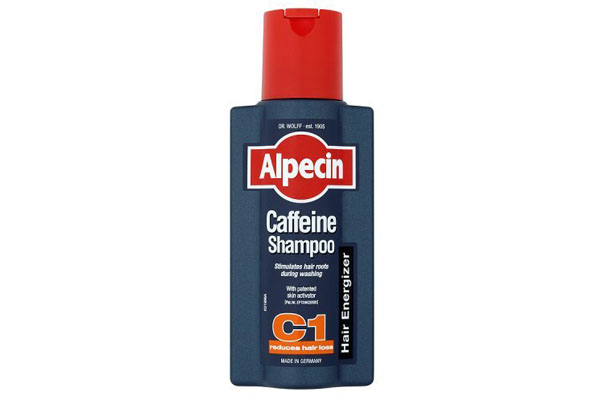The Alpecin shampoo, created by a German company, is specifically formulated to address hair loss caused by DHT, a hormone that often becomes a nuisance for many of us. In this article, we aim to provide a comprehensive Alpecin shampoo review, including our own assessment, customer feedback, and scientific analysis.
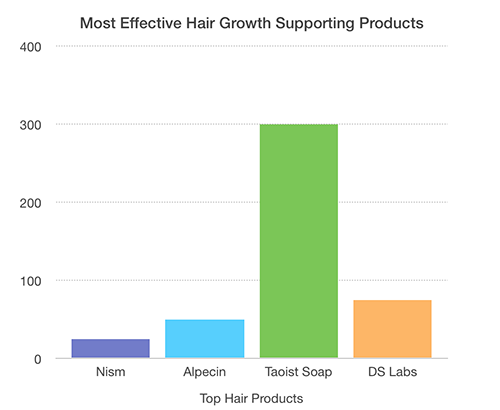
The chart above displays the effectiveness ratings for various hair loss shampoos, with Taoist soap currently being the most effective option. Please note that the chart is regularly updated, and the last update was in February 2018.
There were some theories suggesting that caffeine-based shampoos, like Alpecin, might block DHT and halt hair loss, giving the hair follicles a chance to recover. However, these theories have been proven inconclusive and untrue in addressing hair problems in any form. The studies supporting these theories were conducted in a controlled test tube environment, which does not reflect the complexities and stresses of the body’s hormone system.
In reality, the primary cause of hair thinning or loss is inflammation in the scalp, which may or may not be visible but is present nonetheless. Hormonal imbalances, including excess DHT, can trigger inflammation, leading to hair loss. Additionally, an unhealthy diet, especially one high in sugar, can directly cause inflammation.
To effectively combat hair loss and promote regrowth, it is essential to address scalp inflammation. This involves making several lifestyle changes, such as improving the diet, managing stress, and incorporating scalp massages. Alongside these practices, using a suitable product like Taoist Soap can be powerful in combating inflammation and stimulating hair growth in the scalp.
Once hair is lost, is it really gone forever?
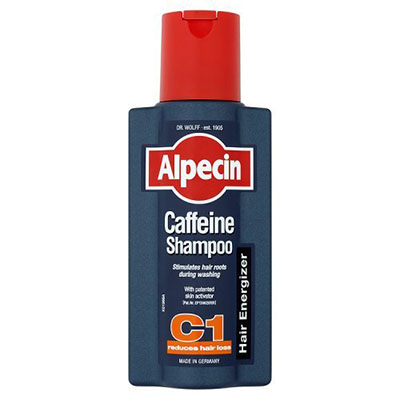
Some individuals believe that once hair is lost, it’s gone forever – however, this is not accurate. Unlike grass that remains lifeless once it dies, hair can be regenerated under the right biological conditions within the body, which either support hair growth or contribute to hair loss.
The skin, of which hair is a part, goes through a monthly regeneration process. The skin you have today is not the same as it was a month or two ago, as it constantly replicates itself. Similarly, hair follicles can be regenerated if the necessary conditions are met, such as maintaining an anti-inflammatory environment, among others.
Is Alpecin Shampoo the sole caffeine-based shampoo available today?
No, several other caffeine-based shampoos have emerged in the market. Some individuals have even resorted to pouring cooled-down coffee on their scalp every day in the hopes of preventing DHT from affecting their hair follicles.
Another caffeine-based shampoo is called Plantur 39. However, it’s important to note that some people search for reviews with skepticism since the scientific evidence behind its effectiveness may be flawed. Tests are often conducted in controlled environments, which can yield better hair growth results due to the absence of hormones, insulin, and other factors that may impact natural conditions.
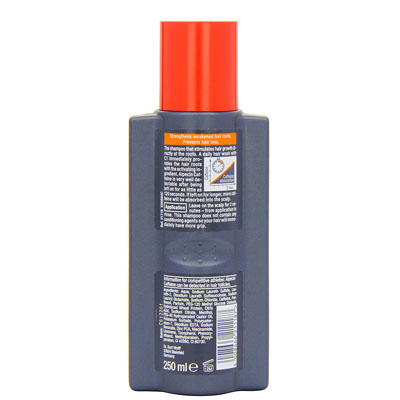
What about the Alpecin Shampoo Review’s that I have read online?
Reading an Alpecin Shampoo Review online, on a website where anyone can comment and post a review, is not the best way to get reviews; most reviews are simply reporting that the customer got good support, and fast shipping, but they are not really reporting the results they are getting from using the shampoo.
Also, most people who have posted reviews in video format, have reported that they did not really get any results from using the alpecin caffeine shampoo – one simply has to google “alpecin caffeine shampoo reviews” to find a bunch of search results.
So why is DHT such a big deal anyway?
DHT, which stands for dihydrotestosterone, is a hormone derived from testosterone. It plays a significant role in hair loss because it attaches itself to hair follicles, making it difficult for new hair to form. However, it’s essential to note that this relationship is still considered a theory and has only been proven in specific experiments. Jumping to conclusions based on a couple of scientific studies can limit a deeper understanding of the subject.
While DHT can be involved in hair loss, it’s important to recognize that it’s not the sole factor. Inflammation also plays a crucial role. For instance, consuming excessive sugar-based foods daily can lead to inflammation on the scalp, which may accelerate hair loss.
Even in women, hormone imbalances can lead to inflammation, resulting in hair thinning and potential hair loss. Fortunately, women tend to experience hair loss differently from men, and they rarely lose all their hair. Additionally, women generally have an easier time regrowing and thickening their hair compared to most men.
Does Caffeine Stop DHT from binding to Hair follicles?
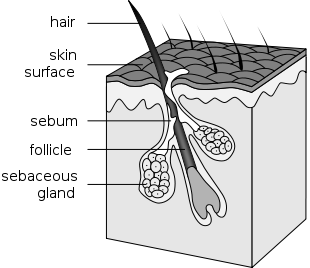
The short answer is no. The studies conducted on caffeine and its effects on hair loss and thinning were only performed in a controlled test tube environment. Although the study mentions adding hormones to mimic DHT (Dihydrotestosterone), it is simply impossible to replicate the various factors present in the human body, such as blood supply, insulin spikes, and constantly changing hormone levels.
Therefore, there is no concrete evidence to support the idea that applying caffeine to the scalp can prevent hair loss or promote hair growth. If someone wishes to improve their hair condition, they need to consider making various lifestyle changes rather than relying solely on caffeine treatments.
Examples of Alpecin Shampoo Reviews left by Customers who have used the shampoo.
“Fast delivery, got the item in time, thanks” – Carl Hickman
“Looks good, got the item promptly, lets hope it works” – Andy Martin
“It dries my hair way too much, and have yet to see any results 2 months in, maybe it does not work for my skin type?” – Jason Aritake
“Not sure why I bought this, if it worked, I would have been cheaper off putting coffee on my head” – Mark Stevenson
“Got it in time after ordering which I was very happy with, let’s hope it works” – Carl Milton
The above Alpecin review examples show how customers rate the Alpecin shampoo positively as they have not tried it, but only just received it and are leaving a review based on that – you still do get the odd person that has used it for a while and is reporting back, but this is usually buried inside all the reviews and harder to notice with all the other reviews.
As explained above, the studies conducted in the Alpecin shampoo were inconclusive and would not produce any results when using the shampoo itself.
What about the Nism Shampoo for hair loss? Does that work for hair loss conditions effectively?
The Nism Shampoo was ranked second on the charts at the top of the page because it effectively cleans the scalp to some extent. However, it does not address issues like hair loss or inflammation. Nonetheless, it does help in keeping the hair free from grease and can be used alongside the Taoist soap, which is designed for hair loss and skin renewal.
While the Nism shampoo contains beneficial B vitamins, simply adding vitamins without proper calculations will not yield results in terms of preventing hair loss or maintaining existing hair. Therefore, we cannot categorize the Nism shampoo as a hair loss treatment but merely as a regular shampoo.
As for the Nizoral Shampoo, it received a low rating on the charts due to its main ingredient, ketoconazole, which is an antifungal agent designed to combat fungal infections. However, there is no scientific evidence supporting its effectiveness in preventing hair loss when used in a shampoo. On the contrary, using Nizoral regularly may even lead to increased hair shedding as it is a potent substance to apply on the scalp.
Various other websites have also reported that Nizoral may contribute to additional hair loss. This information aligns with our own findings, and therefore, we strongly advise against using this shampoo.
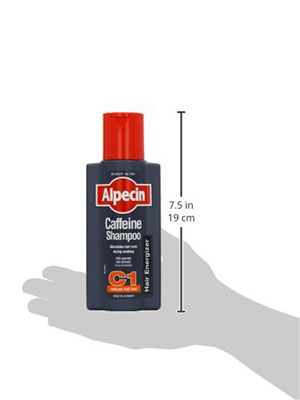
DS Labs reviews? What do you say about their hair loss product range?
Revita Shampoo from DS Labs and their other hair loss products are essentially containers filled with randomly added vitamins and antioxidants that do not specifically target hair loss or address inflammation, which is the root cause of hair loss.
Many companies follow the practice of incorporating a blend of vitamins and minerals into their shampoo and labeling it as “natural.” However, it’s important to note that the term “natural” can also apply to harsh chemicals and synthetically created vitamins, which are not equivalent to genuine vitamins.
We strongly advise against supporting companies that adopt the approach of haphazardly combining various ingredients into their products. While it might sound promising, oftentimes, these ingredients can counteract each other, rendering the formula ineffective.
In the past, several supplement companies used a similar strategy, adding phrases like “with added vitamin B” to their products, even extending it to cereals.
The issue with this practice is that these vitamins are often synthetic, meaning they are artificially created in a laboratory and derived from substances that humans or animals don’t normally consume, such as petroleum. While these synthetic vitamins may resemble real vitamins structurally, they can be harmful to the body if ingested. Even when applied topically, such as in a shampoo, they may do more harm than good, as topical products are typically designed to have a limited effect by permeating the skin barrier (to some extent, of course).
- Related post: Nizoral Shampoo Hair Loss Review

